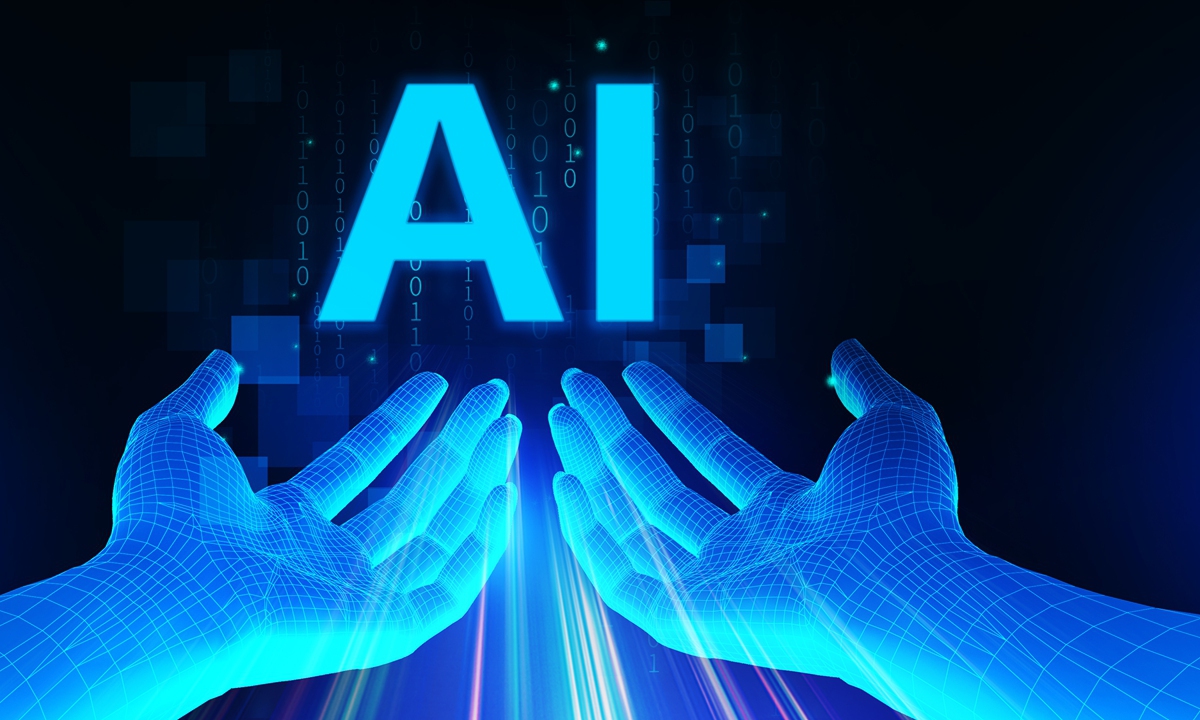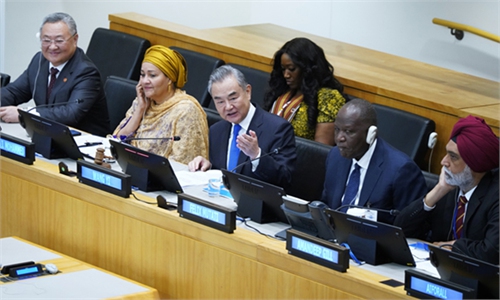
AI Photo: VCG
China and Zambia jointly held the High-level Meeting on International Cooperation on Capacity-Building of Artificial Intelligence on the margins of the general debate of the 79th session of the UN General Assembly recently, during which China announced the AI Capacity-Building Action Plan for Good and for All.The background of the Action Plan stems from the UN General Assembly resolution, "Enhancing International Cooperation on Capacity-Building of Artificial Intelligence," i.e. A/RES/78/311., which China led in July. This program further advances the resolution's specific measures based on the AI capacity-building workshop held in early September in Shanghai, organized by China and with participation from the UN. It represents important progress in discussions on AI capacity-building on the UN platform. Previously, during the Summit of the Future, member states collectively adopted the "Global Digital Compact," which includes an international consensus on advancing AI capacity-building through international partnerships.
Following this, the high-level meeting on international cooperation for AI capacity-building convened at the UN, supporting and responding to the "Global Digital Compact" and the Action Plan is the first document on AI capacity building passed by consensus and a collective call from the international community.
China's proposal to establish a "Group of Friends for International Cooperation on AI Capacity-Building" will be a key component in advancing the AI capacity-building initiative of the Global Digital Compact at the UN.
The Action Plan articulates China's systematic understanding of AI capacity-building through its vision and goals, encompassing infrastructure, industry and ecosystem empowerment, talent development, public literacy enhancement, data construction, and safety governance. Advancing digital and AI hardware and software infrastructure is fundamental and essential for capacity-building, and this is what many low- and middle-income countries currently lack. Only by establishing a solid foundation can these countries effectively leverage AI to empower various industries according to local conditions. Safety and governance are vital components of AI capacity-building, ensuring the robust development and application of AI. Improving public literacy allows a nation to have an objective understanding of the developmental stage and level of AI, enabling appropriate collective decisions based on genuine development realities.
Teaching people how to fish, rather than just giving them fish, emphasizes that every country has the sovereignty to cultivate its own talent in developing original AI capabilities, which makes talent development crucial for sustainable capacity-building.
To achieve these visions, the Action Plan outlines 10 specific actions from China. The Action Plan identifies 10 actions China will take, including promoting AI and digital infrastructure connectivity and carrying out cooperation in R&D and application of models and language resources, better synergizing AI strategies and strengthening policy exchanges, and actively sharing technical practices. China will hold 10 sessions of AI seminars by the end of 2025 for developing countries as a priority.
China aims to actively promote the application of AI in education, carry out exchange and training of AI professionals, increase the sharing of expertise and best practices, promote AI literacy among the public, protect and strengthen the digital and AI rights of women and children, and share AI knowledge and experience.
The Action Plan represents a consensus and shared understanding between the Chinese government and the AI industry-university-research community, providing strong support, participation, and practice toward the UN's vision for AI capacity-building. It calls for active responses and participation from various sectors in China to jointly advance AI capacity-building with partners from different countries, empowering deep cooperation in global AI development and governance.
The author is a professor at the Institute of Automation, Chinese Academy of Sciences, director of Beijing Institute of AI Safety and Governance, and a member of the UN High-Level Advisory Body on Artificial Intelligence. opinion@globaltimes.com.cn


